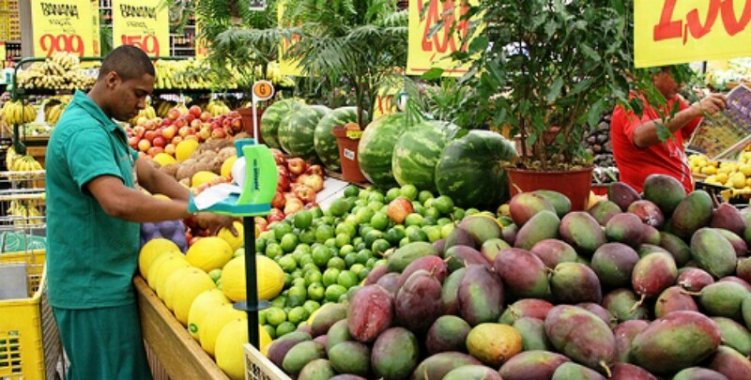The Food and Non-Alcoholic Beverages class registered the highest price increase, with 2.11 percent, followed by Alcoholic Beverages and Tobacco, with 2.08 percent, Hotels, Cafes and Restaurants, with 1.97 percent, and Clothing and Footwear, with 1.89 percent, refers to the National Consumer Price Index (IPCN), released this Friday.
The Food and Non-Alcoholic Beverages class was also the one that, according to the INE, "contributed the most to the increase in the general price level", being responsible for 1.02 percentage points of the 1.81 per cent increase in October.
In year-on-year terms, the 1.81 per cent increase in October this year represents an increase of 0.43 percentage points over the 1.38 per cent recorded in the same period of last year.
Since the start of the year, inflation in Angola has totalled 20.18 percent, similar to that recorded in the first ten months of 2017, when it reached 20.95 percent. Compared to 2019, this represents an increase of 7.2 percent over the 12.98 percent recorded then.
Over the 12-month period, Angola's consumer prices totalled a 24.34 percent increase, a figure that exceeds 23.67 percent between January and December 2017 and is close to 24.7 percent in the sum of the 12 months prior to November of that year.
According to INE, the provinces with the greatest increase were Lunda Norte (2.13 percent), Luanda (1.99 percent), Moxico (1.83 percent) and Bié (1.76 percent).
On the other hand, the provinces with the least variation were Cunene (1.27 percent), Lunda Sul (1.38 percent), Namibe (1.4 percent) and Benguela (1.48 percent).
In the proposed General State Budget for 2021, Luanda estimates an annual accumulated inflation rate of 18.27 percent for next year.
In early September, rating agency Fitch predicted a 4 percent recession in Angola and an increase in inflation to 24 percent this year.
"The contraction in the oil sector, combined with the lack of liquidity in dollars, will keep Angola in the fifth consecutive year of recession, with a contraction of 4 percent and an acceleration of inflation to 24 percent this year, well above the average for countries with a B rating of 4.8 percent," the agency said then, adding that the Angolan economy "continues to be limited by the high level of dependence on raw materials.
Due to the covid-19 pandemic, there was a reduction in the price of a barrel of oil, which led to member states of the Organization of Petroleum Exporting Countries and their partners reducing production in order to balance the price of a barrel of oil.







